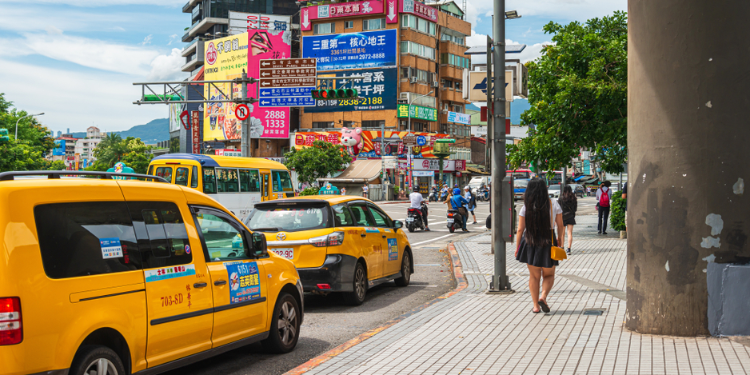
More and more qualified professionals are betting on Taiwan as an expat destination.
The country seems to be coming out of the shadows making a notable entry into the top 20 countries that are attracting more and more qualified professionals. The study published last month, and conducted by the Institute for Management and Development (based in Switzerland), looks at the capacity of states to grow, to become more attractive, and to attract new foreign talent. How can we explain spurt of attractiveness of Taiwan to foreign professionals?
The biggest improvement
From 27th to 20th place, Taiwan is recording its strongest growth yet as well as the biggest improvement compared to last year's ranking. While the country remains behind Singapore and Hong Kong, respectively 10 and 15, it is, however, ahead of Japan, although it is the world's third largest economy (behind the United States and China). Japan has lost 6 places compared to last year, going from 29th to 35th place.
Taiwan follows the Singaporean model. Singapore has also gained 3 places in a year. To put itself out there, Singapore has relied heavily on investment, and on a long-term vision: investing in education, health, advanced technologies, quality of life, and so on to attract qualified foreign staff.
Taiwan and its 23.5 million inhabitants - including about 750,000 expatriates - have chosen to invest heavily in services and urbanization. 78% of the population lives in the city. The tertiary sector accounts for more than 62.8% of activities, compared to 35.4% for industry and 1.8% for agriculture. The country's economy is flourishing, with an average growth of 2.60% per year, and a GDP exceeding $ 602 billion: Taiwan is the 21st richest country in the world, in terms of GDP; ahead of Norway (29th), Hong Kong (36th), or Finland (43rd). A profitable economic situation for expatriates who are more and more to flock the island.
Mission: Silicon Valley?
To attract ever more new brains, the country has particularly developed its research pole: for expatriates, the sectors offering the best opportunities are communication and new technologies, chemistry, electronics, or even textile innovative technology. Companies like HTC, Acer, ASUS or Trend Micro have established themselves in Taiwan to develop their market. Well aware of the island's potential, the government has invested more than $ 350 million in research and development since 2016 to transform Taiwan into the "Silicon Valley" of Asia.
And it seems to be working. Large companies and start-ups invest and establish themselves in the country; and, with them, experienced expatriates are eager to settle in an attractive country that is in constant evolution. In partnership with the government, the Taiwan Rapid Innovation Prototyping League for Entrepreneurs provides support to companies tempted by the Taiwanese adventure. The island is becoming the new force of industry and technology.
Taiwan is also the new place to be to study. Located in Taipei, the capital, National Taiwan University is the first university in the country. It offers courses ranging from law to medicine, science and engineering. Classes are available in English and Chinese. In its wake, National Tsing Hua University, located in Hsinchu, has made a name for itself in science and technological innovation.
Like Singapore, Taiwan is focusing on education: it is important to spot the leaders of tomorrow very early on. Ideal for attracting expatriates, students or adults, single or with children. They are certain to find a quality of life and future prospects on the island.
Taiwan is also an island where life is good. The Global Peace Index 2019 ranks the country 36th (out of 163) safest country. Well ahead of the United Kingdom (45th), South Korea (55th), or France (60th).



















